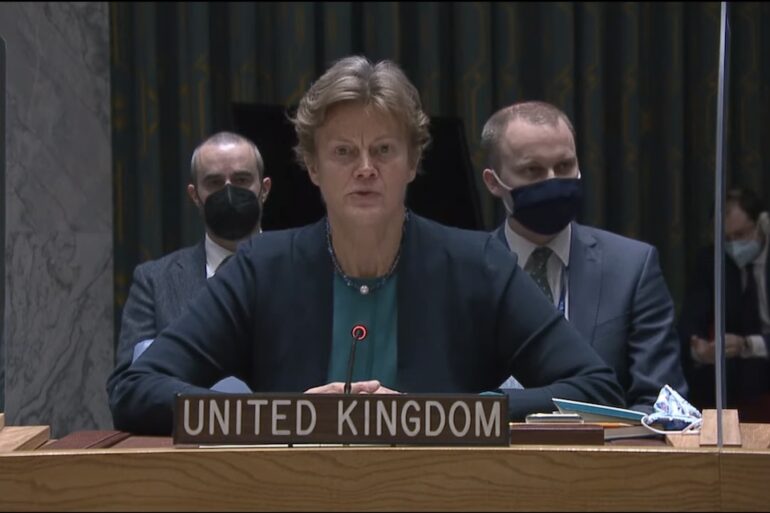The United Kingdom’s Ambassador to the United Nations, Barbara Woodward, speaking at the UN Security Council meeting on Thursday, condemned the Taliban’s ban on women working for the UN in Afghanistan.
“Since the Taliban took power, they have imposed restriction after restriction, resulting in the systematic erasure of women and girls from society,” Woodward said in her statement. “Banning Afghan women from working for the UN in country is the latest example of the Taliban’s complete disregard for women’s fundamental rights.”
Woodward called the ban a “direct violation of the core tenets underpinning the UN Charter, including the principle of non-discrimination.” She said it would “severely impede the delivery of life-saving aid to women and girls in a time when 28 million people – over two-thirds of all Afghans – are in need of assistance.”
| KabulNow Special Report: Afghanistan’s Overburdened Women: The vicious cycle of poverty and lack of family planning
| Afghanistan among countries with the highest number of child brides
The UK ambassador welcomed the UN Security Council’s unanimous condemnation of the Taliban’s latest decision and called for an “immediate reversal of all policies which restrict women’s rights and fundamental freedoms.”
She said the UK joined other Council members and Organisation of Islamic Cooperation countries in co-sponsoring the resolution to send an “unequivocal message to the Taliban: there is no justification for what you are doing to women and girls in your country.”
Since April 2021, the UK has given $662 million to address the deepening humanitarian crisis in Afghanistan. Woodward said the UK remained committed to supporting the UN and its partners working in country. “We will not abandon the women and girls of Afghanistan,” she said.
The Taliban on Friday rejected the UN Security Council’s call saying that the restrictions on women and girls were “an internal social matter of Afghanistan that does not impact outside states.”




